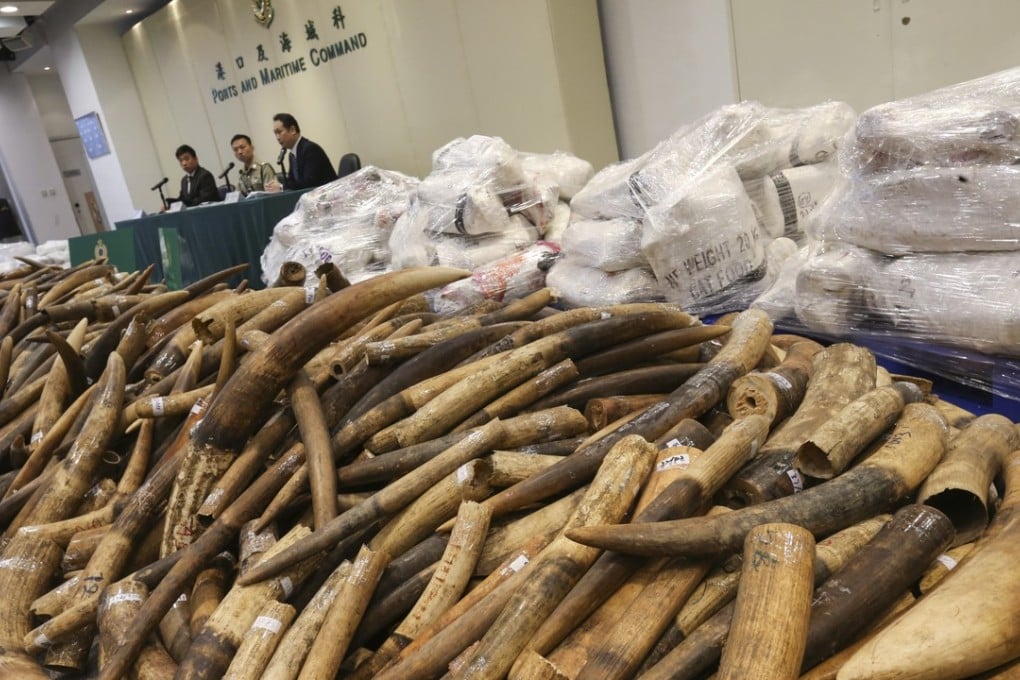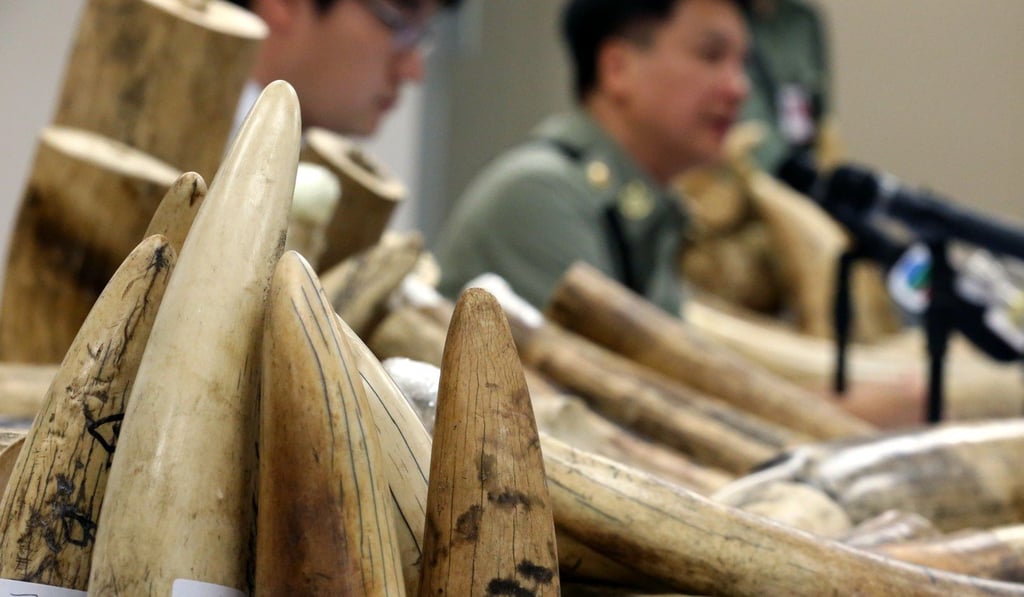Holes in data for hippo teeth imports point to illegal trade in Hong Kong, HKU study finds
Authorities must do more to stamp out illicit trade in endangered species, researchers say

Hong Kong authorities must do more to stamp out the illegal trade in endangered species by more heavily scrutinising documentation for imports, a study by the University of Hong Kong found.
Researchers said they believed the discrepancy between the documented and actual amount of hippopotamus teeth – often sold as an alternative to ivory – imported from just two countries alone since the 1980s was as much as 17 tonnes, equivalent to the teeth of nearly 3,300 hippos.
The mismatch in data between exporters and importers signalled illegal trading still occurred, the study found.
Global fight against illegal ivory trade needs more teeth, as the killings continue in Africa
The ivory trade remains legal in Hong Kong, although the government has announced plans to phase it out, with complete abolition by 2021.

As a signatory to the Convention on International Trade in Endangered Species of Wild Fauna and Flora (CITES), the trade in endangered species in Hong Kong is strictly regulated by law.
Businesses must obtain a licence from the Agriculture, Fisheries and Conservation Department.
But the HKU study, done by the university’s School of Biological Sciences, found that the trade volumes declared by importers and their exporters often did not match.